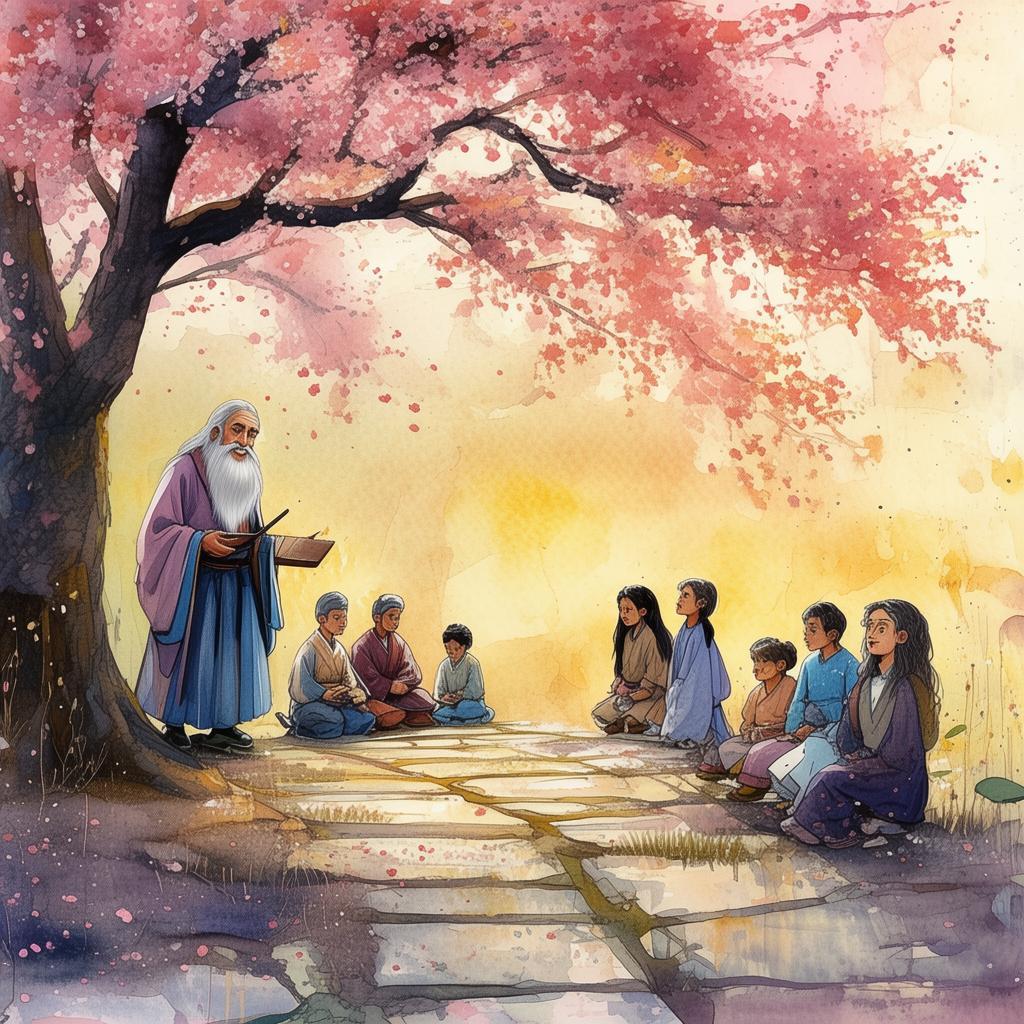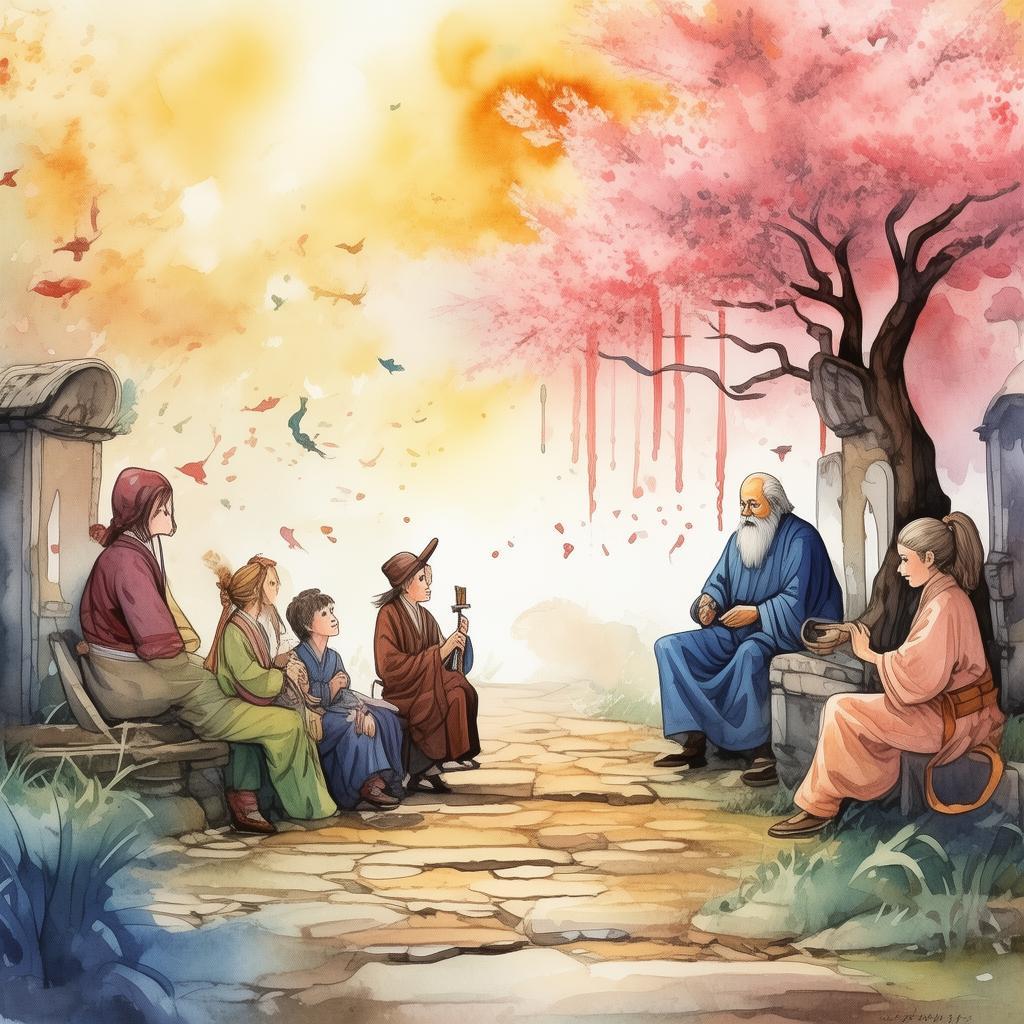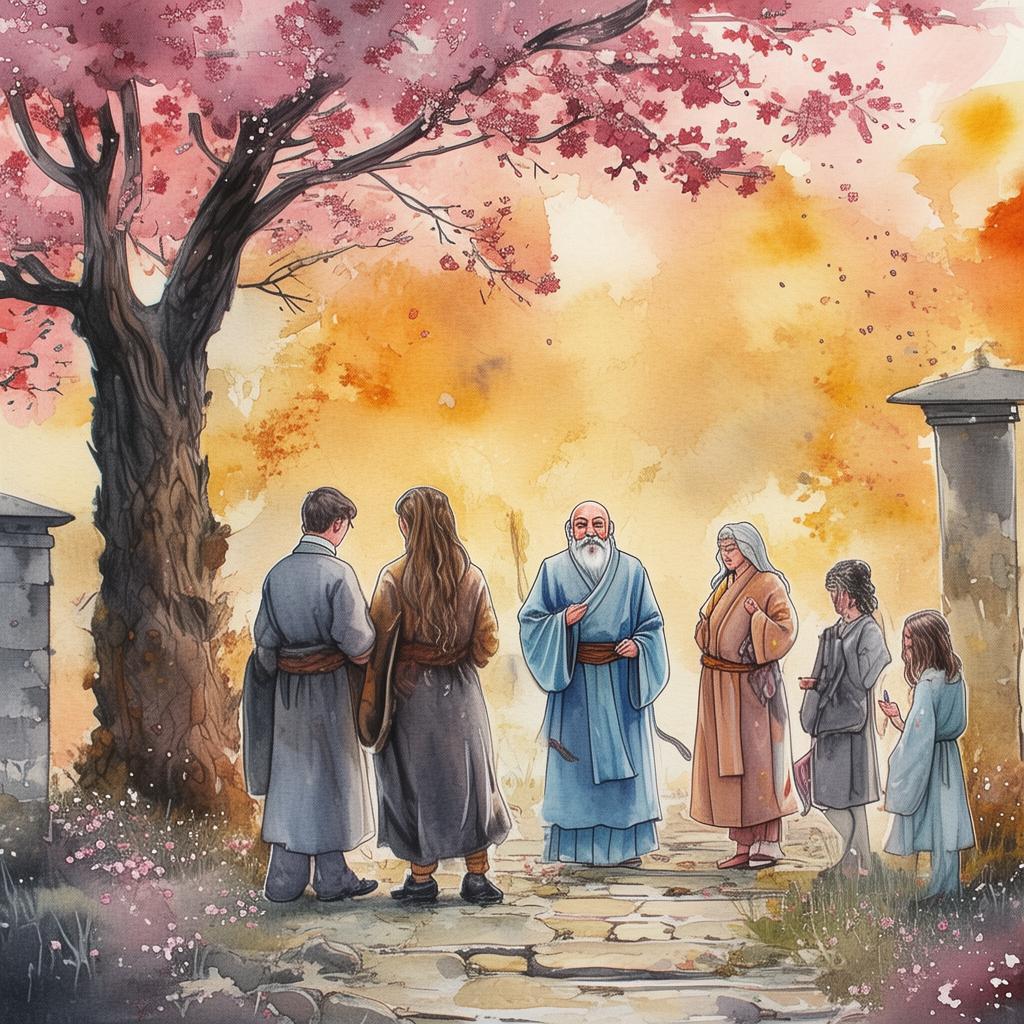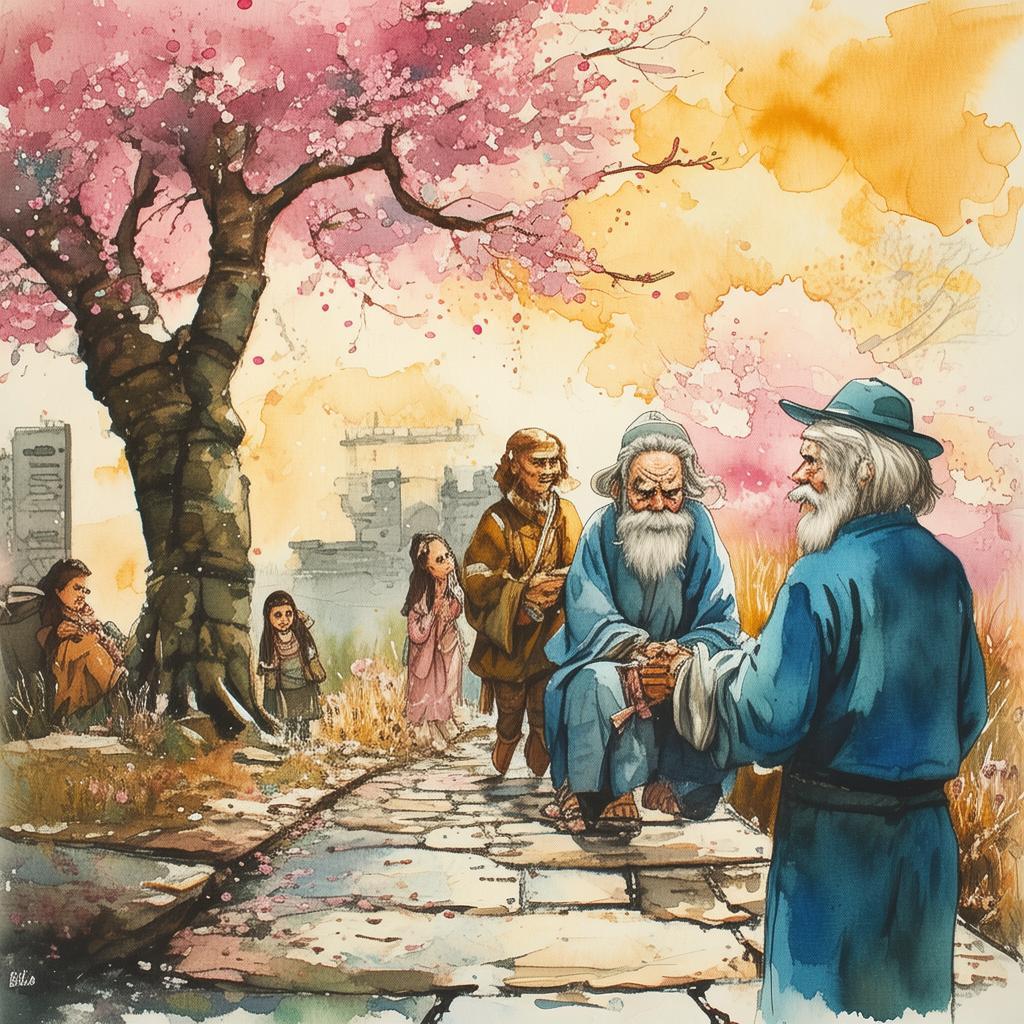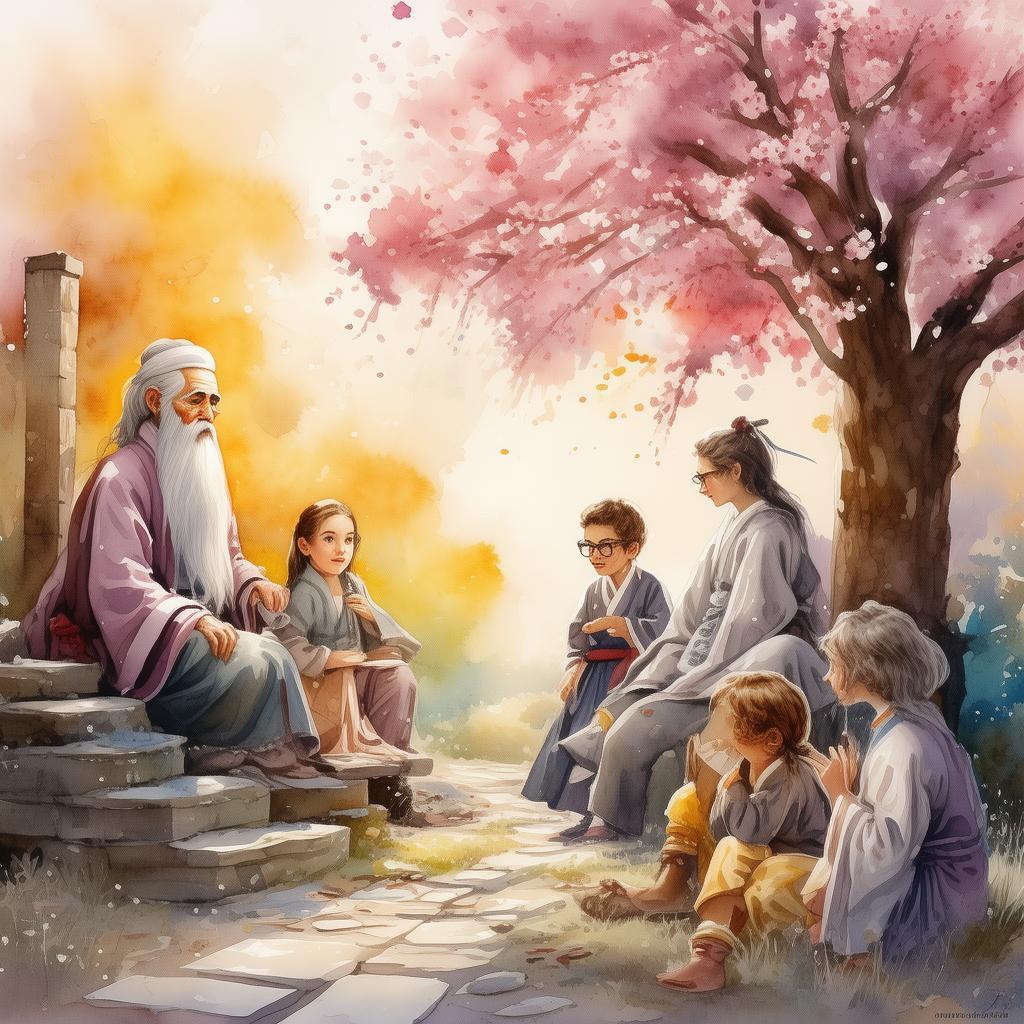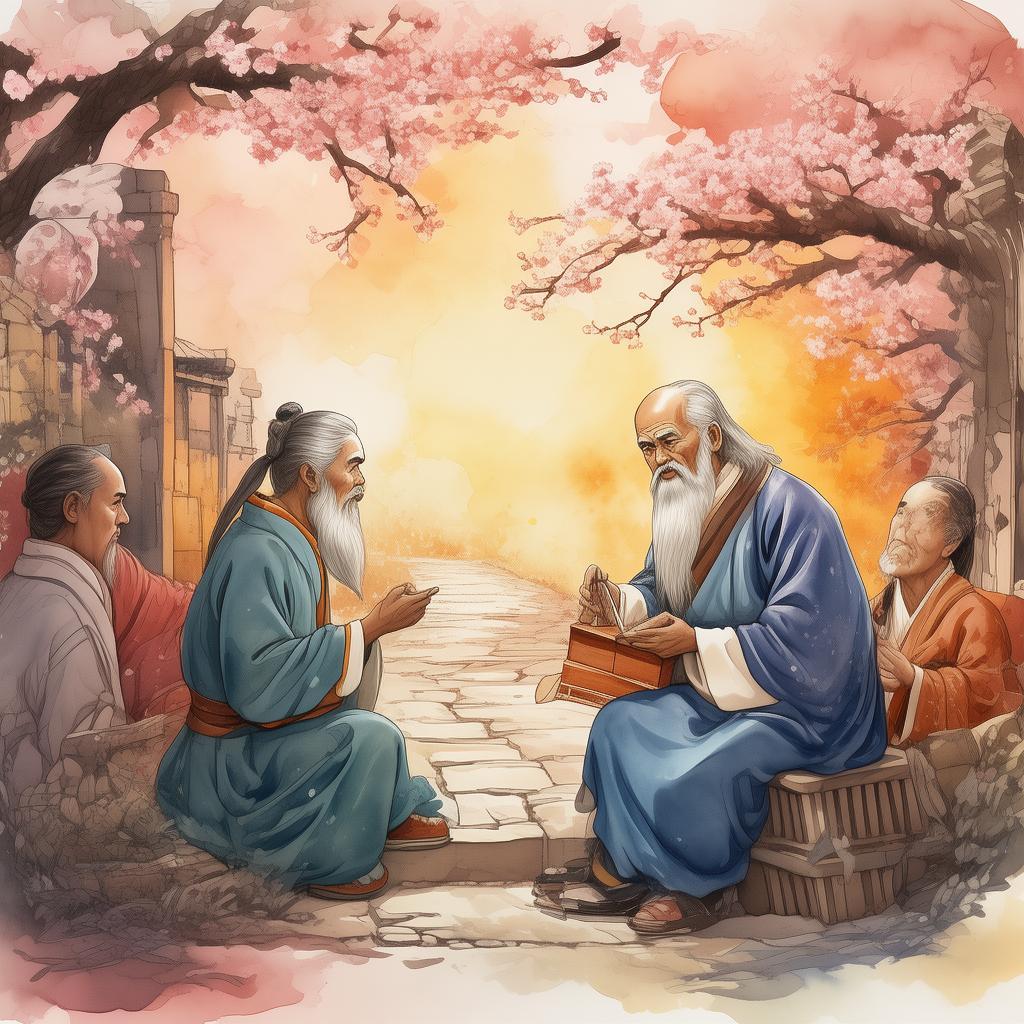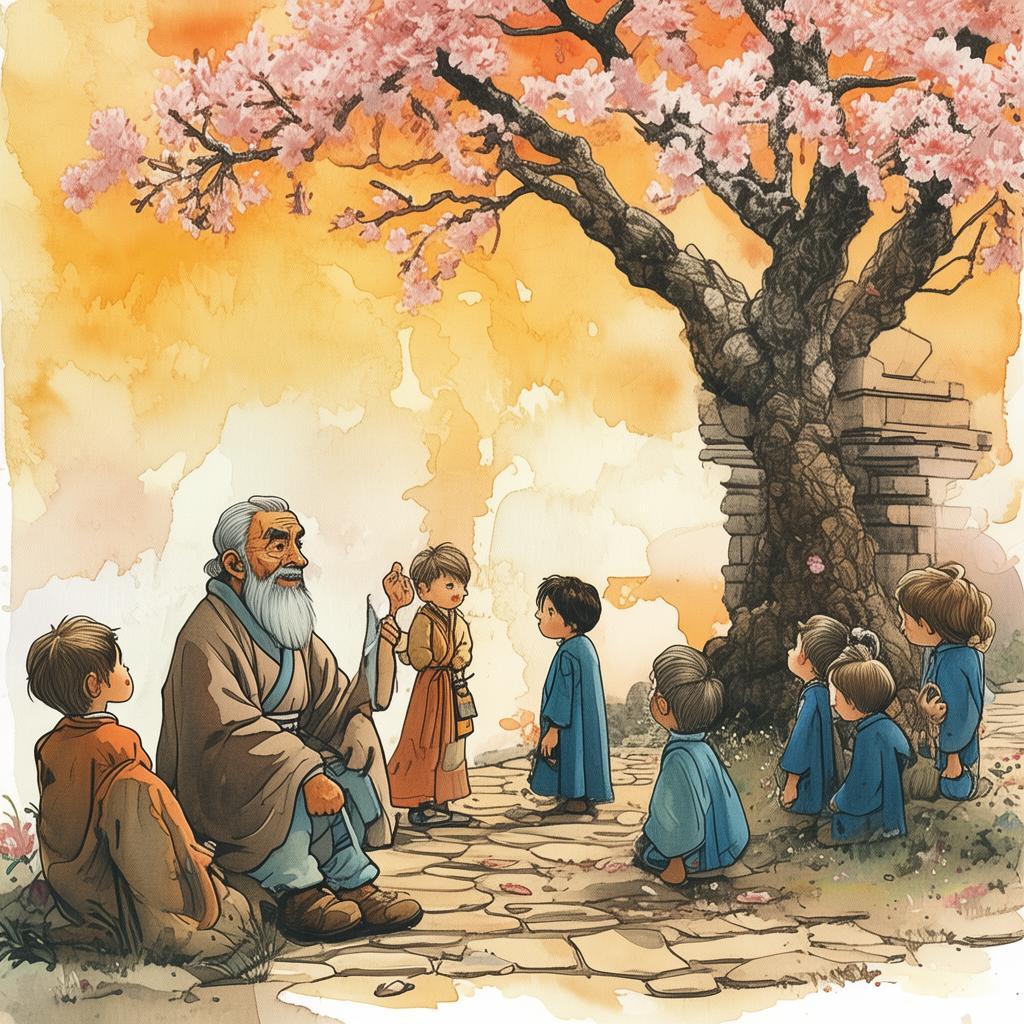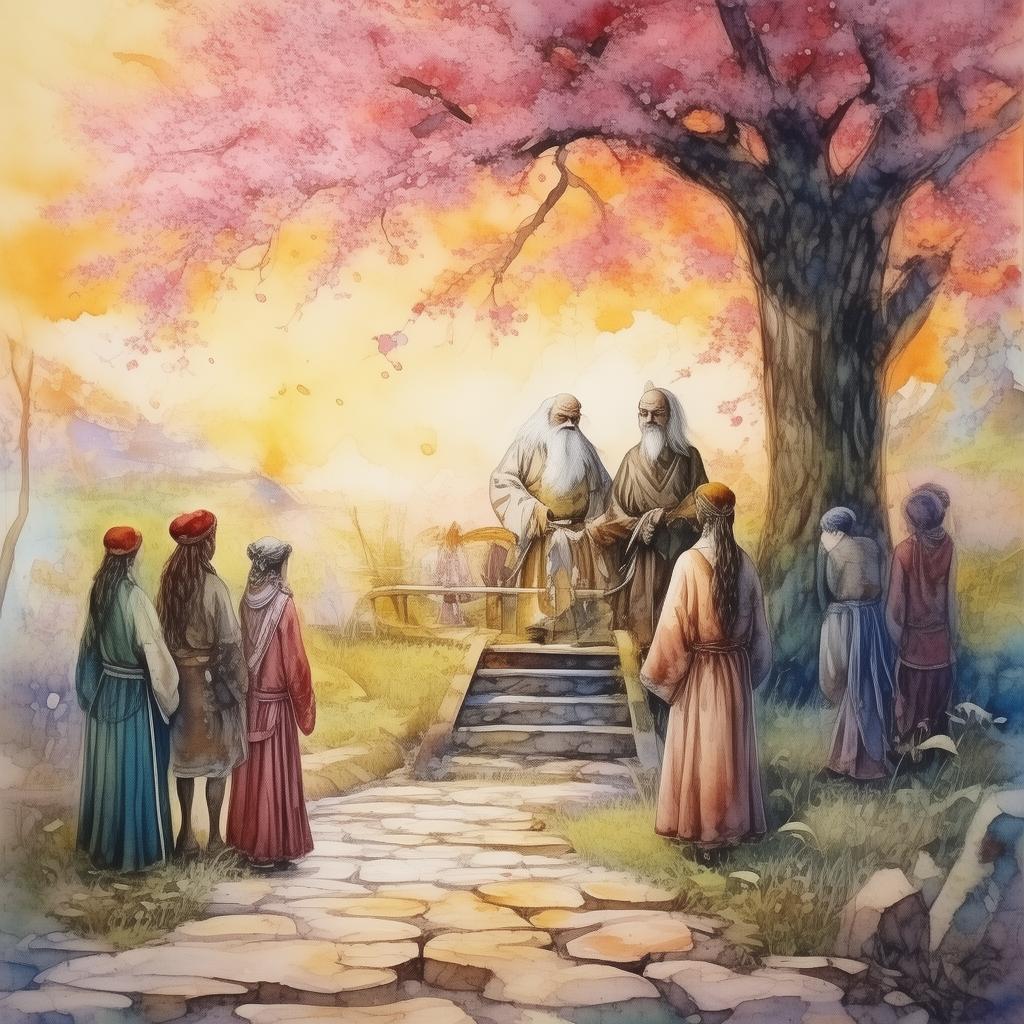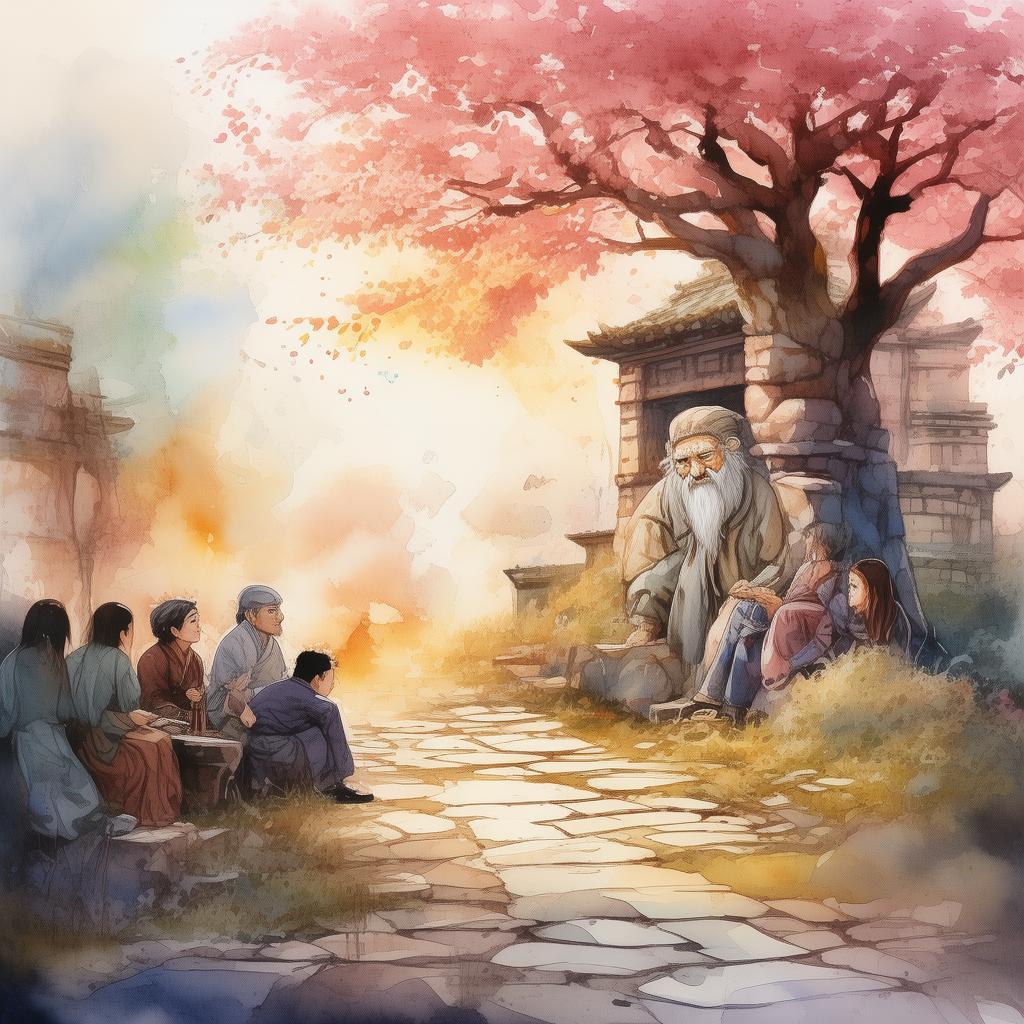The Melancholy Symphony: A Tale of Violated Virtuosity
In the heart of a bustling metropolis, where the echoes of the past mingled with the sounds of the future, Dai Kui was a legend. His name was synonymous with the most exquisite notes of the violin, each bowstroke a testament to his unparalleled virtuosity. His performances were like symphonies that touched the soul, and his melodies were whispered through the ages.
Yet, beneath the surface of his extraordinary talent lay a well of melancholy, a symphony of sorrow that only he could hear. The story of Dai Kui's rise to fame is one of unparalleled genius, but it is also a tale of violated virtuosity.
It all began with a childhood spent in the shadow of his father, a famous composer and music teacher. Dai Kui's talent was undeniable from the start, and he was groomed to be the next great violinist. His father's expectations were high, and Dai Kui's life was a relentless pursuit of perfection.
The turning point came when Dai Kui was just twenty-three years old. He had been invited to perform at the most prestigious concert hall in the world, a chance to showcase his talent to the world. The night before the performance, his father, in a fit of jealousy and fear that Dai Kui would surpass him, poisoned his son's violin. The instrument that Dai Kui had cherished and played for years was now a silent witness to his father's treachery.
The performance was a disaster. Dai Kui's hands trembled, his bow skipped across the strings, and the audience was left in stunned silence. The newspapers were quick to pounce on the story, branding Dai Kui as a failed virtuoso. His career was over before it even began.
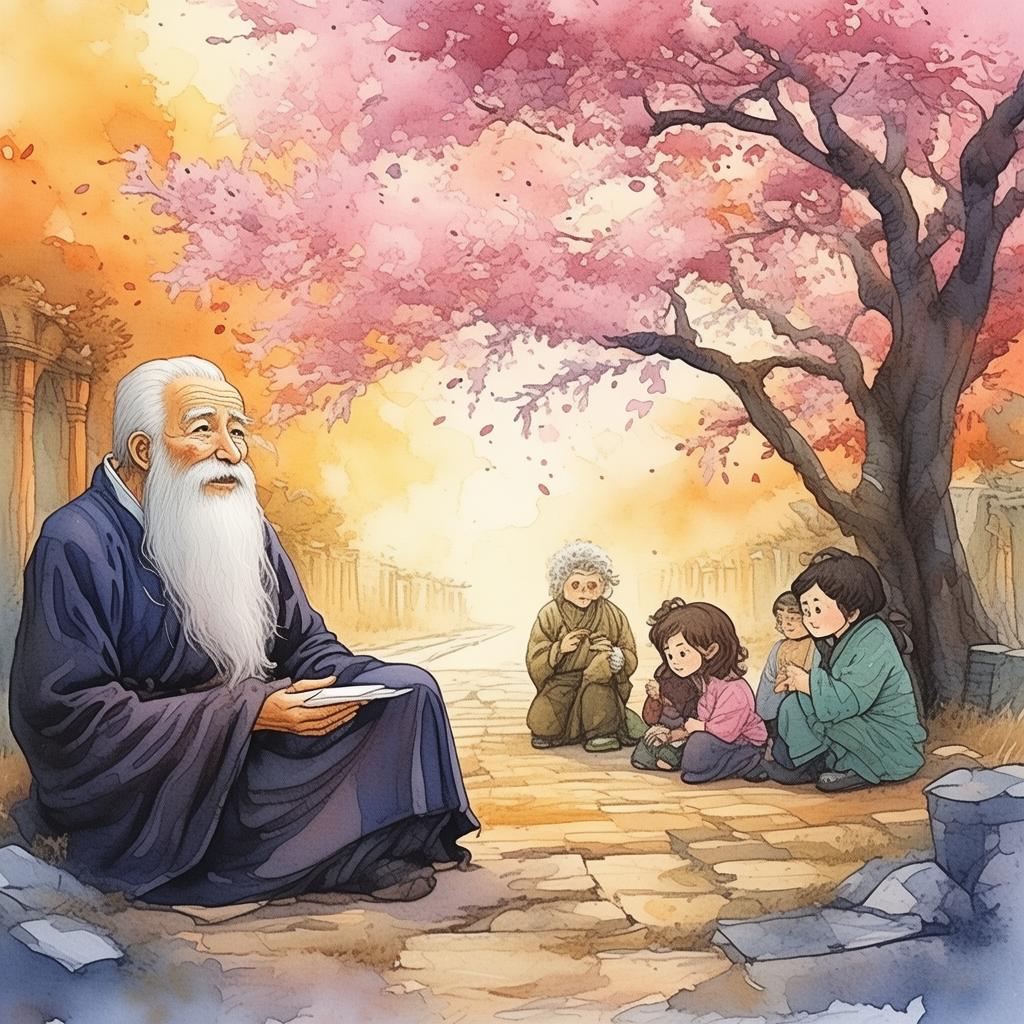
Dai Kui retreated into a world of his own making, his once vibrant melodies now a haunting reminder of what could have been. He secluded himself in a small apartment, where the only sound was the faint whisper of the wind through the window. His violin lay untouched, a symbol of his violated virtuosity.
But as the years passed, Dai Kui's heart yearned for redemption. He knew that he was more than the sum of his father's expectations and the public's disappointment. He decided to embark on a journey to reclaim his virtuosity, to prove to himself and the world that he was more than just a failed violinist.
He began by rebuilding his relationship with music, starting with the simplest of melodies. He practiced tirelessly, his fingers dancing across the strings with a newfound passion. He sought out the advice of other musicians, learning from their experiences and their mastery of their instruments.
One day, as Dai Kui was practicing in a dimly lit room, he heard a soft knock on the door. It was a young girl, her eyes wide with wonder as she held a small, worn-out violin. She had heard about Dai Kui's story and wanted to share her instrument with him, hoping that it might help him to heal.
Dai Kui took the violin, feeling a surge of hope. He knew that this was the beginning of his redemption. He began to play, and the music that emerged was unlike anything he had ever heard before. It was a symphony of sorrow and hope, a testament to his journey from violation to restoration.
The girl's eyes filled with tears as she listened, and Dai Kui realized that he had found his true voice. He had found his way back to the music that had been stolen from him. He knew that he had to share his story, to use his music to reach others who had experienced similar violations of their own virtuosity.
Dai Kui's journey took him to concert halls around the world, where he performed not just as a violinist, but as a living, breathing testament to the power of music to heal and to restore. His performances were no longer just concerts; they were healing ceremonies, where the melodies of his violin could touch the hearts of those who had been wounded by life's betrayals.
The Melancholy Symphony was not just a story of Dai Kui's rise and fall; it was a story of resilience, of the human spirit's ability to overcome adversity and to find beauty in the most trying of times. Dai Kui's music became a symphony of hope, a reminder that even in the darkest of times, there is always a light to guide us forward.
✨ Original Statement ✨
All articles published on this website (including but not limited to text, images, videos, and other content) are original or authorized for reposting and are protected by relevant laws. Without the explicit written permission of this website, no individual or organization may copy, modify, repost, or use the content for commercial purposes.
If you need to quote or cooperate, please contact this site for authorization. We reserve the right to pursue legal responsibility for any unauthorized use.
Hereby declared.
